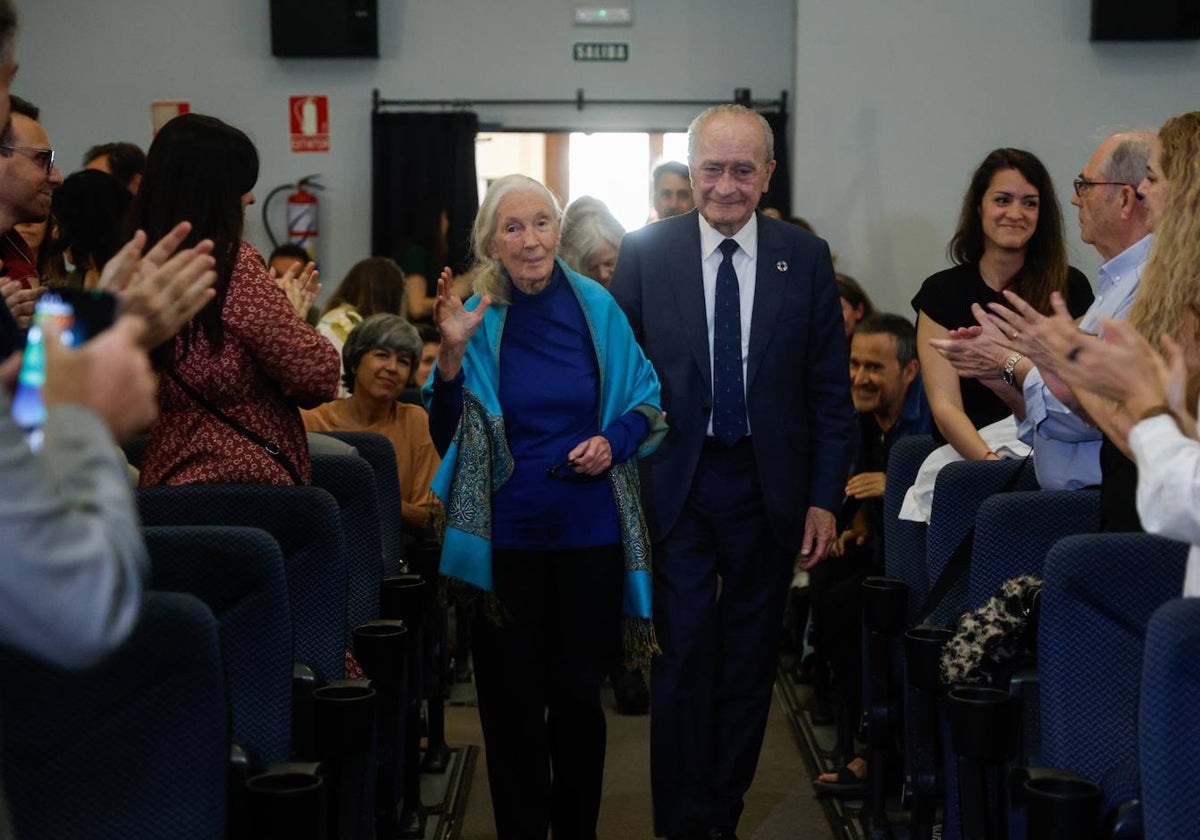Zoologist and primatologist Jane Goodall in Malaga for premiere
The British researcher is in the city to present her latest documentary, Reasons for Hope, and raise awareness of the importance of caring for the planet and the animal world
Her inspiring message after a life dedicated to animals and conservation has won her the hearts millions of people around the world. In Malaga too, of course. Jane Goodall, the English zoologist and primatologist, considered the world's foremost expert on chimpanzees, was in the city for the Spanish premiere of her documentary Reasons for Hope, on Thursday 1 May in Malaga city's Albéniz theatre. Goodall was welcomed with a standing ovation and a resounding applause. "We need to spend more time with nature," she said.
Goodall has spent 35 years of her life studying wild chimpanzees in their natural habitat, which has allowed her to learn, among other things, that these animals use tools. She now leads numerous initiatives that aim to improve awareness of animals and the planet.
The researcher's fame is worldwide. She has received more than a hundred awards including the Prince of Asturias Award for Research and the Unesco Gold Medal. In 2002 she was appointed United Nations Messenger of Peace. At the age of 91, she still travels 300 days a year to see first-hand the inspiring projects being carried out around the world.
Malaga hosted the national premiere of the documentary Reasons for Hope
Before the screening, the general director of the Jane Goodall Institute, Federico Bogdanowicz, explained that the city was chosen by the researcher herself because "Malaga shows that it is following the same path as the foundation, working for sustainability".
The document shows different real cases of success and hope for the future of the planet and humans. It follows the recovery of the common loon, a type of bird that lives in the lakes of Sudbury (Canada); the creation of mechanical trees that trap CO2 or the return of the ibis, another species of bird, which now flies between the Swiss Alps and Italy.
During the screening, Goodall explains that after 35 years in Gombe (Tanzania) working with chimpanzees she realised that the environment was under siege and so she decided to "travel the world raising awareness and trying to give people hope". "My role," she adds, "is to get people to act because we all have a role to play in making the world more sustainable and more just".
After the screening the audience had the opportunity to ask Goodall about her work, her passion and her life. One person asked her about the impact of capitalism, to which she answered, "Surely we should do things differently because there cannot be infinite growth on a planet with finite resources and a constantly growing population".
She also referred to the wars ravaging the world and the importance of embracing nature in the worst of times: "Wars are horrible, but if we don't take care of nature, it will be the end of us all."
Goodall ended her talk by hugging Claudia, a young woman who had asked her about the situation that many animals live in and the importance of defending them all. "Can we finish with a hug," the researcher asked the young woman, who was clearly excited to be in the presence of such an iconic figure. And the fact is that small gestures also help to make the world a better place.

